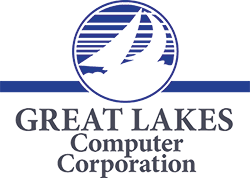Understanding the Impact of Malware
 The term “malware” is a shortcut way of referring to malicious software installed on a system without the owner’s permission or knowledge. Malware tends to produce two major effects, both of them negative. Some malware is engineered specifically to interfere with a system’s data security, altering, damaging, or even wiping out information stored on the system. Other types make spying on a user’s computer-based activities their primary mission.
The term “malware” is a shortcut way of referring to malicious software installed on a system without the owner’s permission or knowledge. Malware tends to produce two major effects, both of them negative. Some malware is engineered specifically to interfere with a system’s data security, altering, damaging, or even wiping out information stored on the system. Other types make spying on a user’s computer-based activities their primary mission.
Common sources of malware infections
A computer that is used as an unconnected standalone device – for managing inventory, for example – is fairly unlikely to ever become infected with malware. This is because the vast majority of malware arrives on a system through some kind of internet connection. There are rare cases of other delivery systems being used; several years ago, a major producer of music CDs decided to install a rootkit into users’ computers whenever certain digital music CDs were inserted into a drive. The intent of the rootkit was to prevent music piracy, but it had other negative effects on the systems affected and was widely regarded as malware by those who saw their systems altered without their knowledge or permission.
The music CD example, however, is quite an unusual one. The usual means of malware transmission include email messages that arrive carrying a virus in an attached file, peer to peer file sharing networks hosting infected files, and dangerous websites that can load malware onto any system that happens to access them. In some cases, the websites are not even directly responsible for this bad behavior. They may have sold advertising space to a company that loads an animated advertisement into the space. In some cases, these Flash- and Shockwave-based advertisements transmit malware without the host website knowing about it – at least, not until outraged website visitors report a problem.
Signs of a malware infection
Many computer users only realize that they have a malware infection when they notice their system experiencing odd events or instability. Odd events indicating a malware infection can include pop-up advertising that appears without rhyme or reason as well as browser redirection, which involves altering internal settings so that users cannot access the sites they desire but are directed instead to rogue sites – often ones that load still more malware onto the system. A system that has dramatically slowed down is another common sign that a malware infection may have taken hold, as the malware is busy consuming system resources, leaving relatively little left over for mission-critical tasks.
A malware infection is a clear sign that computer protection needs to be improved through the use of strategies such as firewalls and anti-virus program.
Great Lakes Computers Data Protection multi-layered approach protects your data in several ways, including anti-virus and anti-malware software, and generating backups to keep you running if it ever goes down. We are an authorized partner for AppAssure Software. AppAssure is the #1 unified backup and replication product that offers data protection for VM, physical and cloud IT environments. Our server backup software has already won 10 major technology industry awards including Gold award in Backup category as well as Gold award in the Disaster Recovery category from Windows IT Pro magazine and also the ISV Winner in Backup category from Virtualization Review Magazine for 2012.
Get your Free Trial of AppAssure today!




